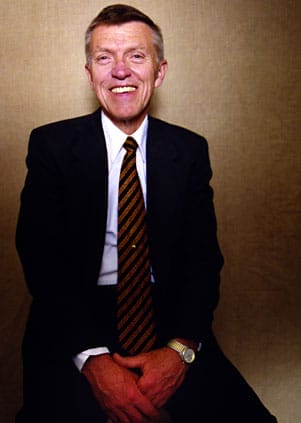A great deal of what has been done right by the troubled airline industry is due to the will of Robert Crandall. During his tenure at American Airlines from 1980 to 1998, which includes stints as president and chairman, he started the modern frequent flyer program, began the hub and spoke system to keep people flying from small cities to major ones on a simplified schedule, and began code-sharing with domestic and important foreign airlines.
Sometimes, Crandall went back and forth with such innovations, as when he put in many tiers of fares at American, then changed to simplified fares, then went back to the more complex system. Even this was a response to technological innovation. He had his analysts figure out, with mathematical matrices, which kinds of travelers flew at what times, on which routes, and with what advanced planning. His goal, he said, was to fill every seat in a plane, not just have the most simplified system. The result? Sabre, the modern reservations system. Crandall is notably blunt, even brusque.
U.S. Vice President Dick Cheney was CEO of Halliburton when USA Today asked him to comment on Crandall’s legacy upon retirement. “His greatest asset: He tells you exactly what he thinks,” said Cheney. “In the corporate world and politics, most people are reluctant to do that. They don’t want to offend anyone or hurt their position. But it’s vital to work with people like Bob.”
Even his union rivals praise Crandall as a tough adversary in negotiations but an unstinting ally in improving the industry. Denise Hedges, the president of the Association of Professional Flight Attendants told USA Today, “Crandall’s brilliant, creative financial and marketing skills are something a manager can learn from.”


























